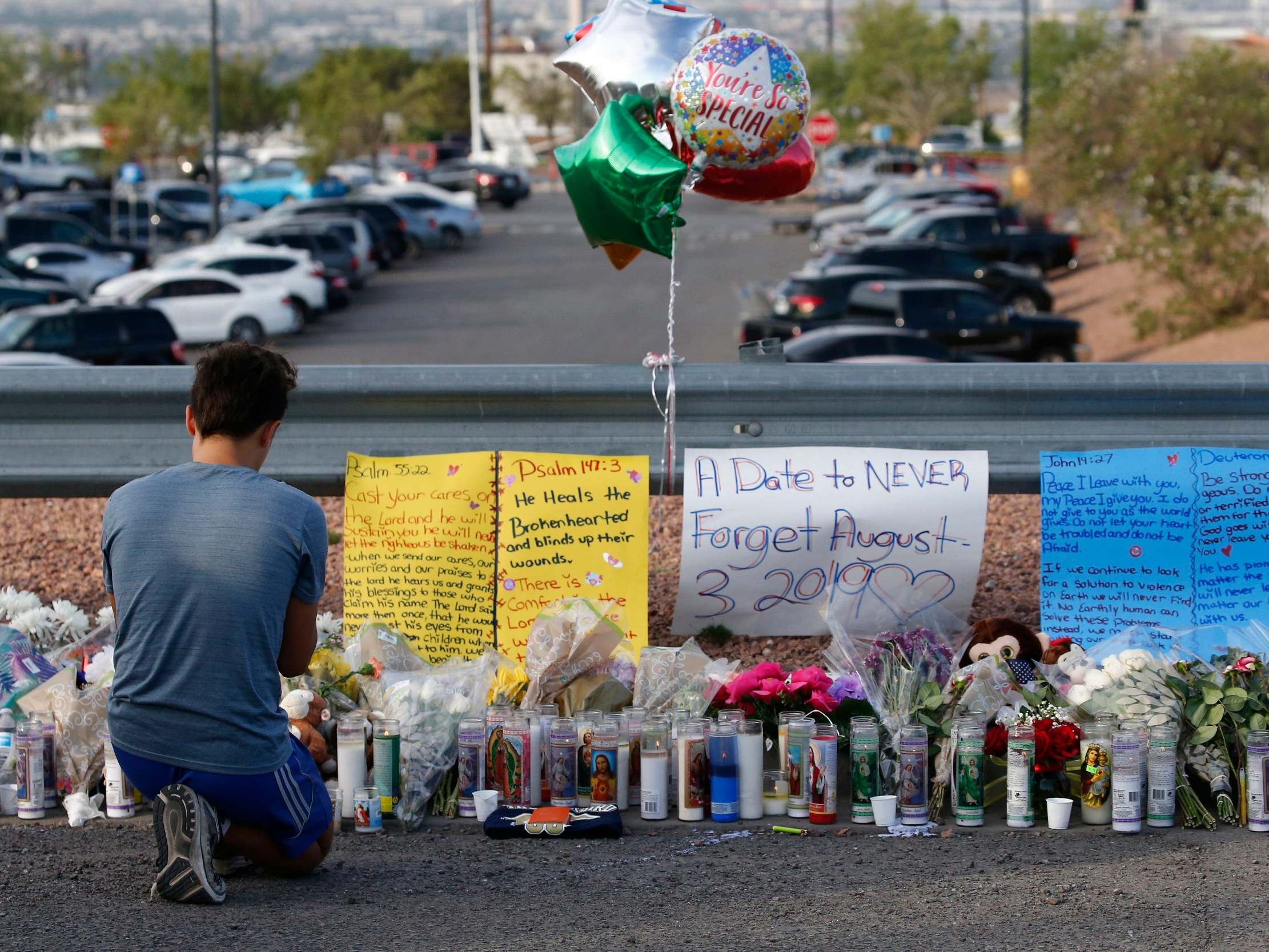El Paso shooting: Trump administration cut programmes to fight far-right extremism and white supremacy in US
'This is a pretty steady drumbeat since Charlottesville,' one terrorism expert says

Your support helps us to tell the story
From reproductive rights to climate change to Big Tech, The Independent is on the ground when the story is developing. Whether it's investigating the financials of Elon Musk's pro-Trump PAC or producing our latest documentary, 'The A Word', which shines a light on the American women fighting for reproductive rights, we know how important it is to parse out the facts from the messaging.
At such a critical moment in US history, we need reporters on the ground. Your donation allows us to keep sending journalists to speak to both sides of the story.
The Independent is trusted by Americans across the entire political spectrum. And unlike many other quality news outlets, we choose not to lock Americans out of our reporting and analysis with paywalls. We believe quality journalism should be available to everyone, paid for by those who can afford it.
Your support makes all the difference.Donald Trump’s administration had previously taken steps to cut programmes aimed at identifying and fighting far-right extremism or white nationalism, an apparent motive that inspired the shooter who opened fire in El Paso, Texas, over the weekend.
In the aftermath of that shooting on Saturday that left 22 dead, a debate surrounding domestic extremism has bubbled to the top of American discourse, with many denouncing Mr Trump’s rhetoric as a racist dog whistle encouraging white nationalists and supremacists
And, even as the president on Monday denounced white supremacy and hatred, residents of El Paso and terrorism experts have questioned the administration’s 2017 decision to cut funding for the Obama-era Countering Violent Extremism Programme, which allocated $10 million to fight the kinds of domestic extremism seen this past weekend, and other measures.
“I think, clearly, the events of this last weekend, and the events of the last several years have shown that writ-large not enough is being done to counter violent extremists and right-wing violent extremists,” Colin Clarke, a senior researcher and terrorism expert with the Soufan Centre, told The Independent.
“Even if you step away from the data, anecdotally, this is a pretty steady drumbeat since Charlottesville,” he continued, referring to the demonstrations in Virginia in 2017 in which a white supremacist killed a young woman.
In addition to ending that 2016 programme, the Trump administration halted more than $1.3 million in grants to organisations dedicated to fighting online extremism, and to helping neo-Nazis hoping to reform.
Those actions came as America experienced a spike in the number of far-right extremist attacks, from two incidents in 2007, to 31 in 2017. And, just last month, FBI director Cristopher Wray testified that white supremacism made up the majority of domestic terrorism cases his agency faces.
“I will say that a majority of the domestic terrorism cases that we’ve investigated are motived by some version of what you might call white supremacist violence, but it does include other things as well,” Mr Wray said during testimony before the Senate judiciary committee.
It’s an issue that has been on the minds of those in El Paso as the city begins to heal after the Saturday shooting, with residents of the Texas city urging Mr Trump to reinstate the Obama-era measures that could potentially combat the kinds of extremism that has landed the city in the middle of that latest American tragedy.
That includes Evelyn Shelton, a student of forensic science at the University of Texas at El Paso, who was with a friend on Monday looking at the wall of flowers and crosses that have been placed overlooking the Walmart shopping centre where the shooing took place.
“It’s really upsetting that he wanted to talk about immigration. Immigration is not the problem here,” Ms Shelton said of Mr Trump’s response to the shooting
Asked about the anti-domestic terror schemes, she said: “If we have groups that have hatred towards certain groups they should be monitored.”
Her friend, Yerian Antonetty, 19, who is studying psychology, said she had seen the president’s tweets. “People are grieving, and he should not be trying to benefit from it,” she said.
Of the Obama-era schemes, she said: “It’s something that should be funded. A lot of these people are violent, and there are certain [people] they don’t want around.”
Another mourner, Ursula Breckinbridge, 77, said she agreed with the president that mental health was an issue, but that fighting extremism appears to be a real issue facing America.
“He had to be mentally ill,” she said of Saturday’s shooter. “You can’t be shooting at people like that if you were in a normal state.”
Asked about whether the president should be targeting white extremists, she said: “I don’t want to speak badly of the president but, yes, it’s something he should do.”
She added: “I am sure the president will do something. He has to do something.”
Join our commenting forum
Join thought-provoking conversations, follow other Independent readers and see their replies
Comments